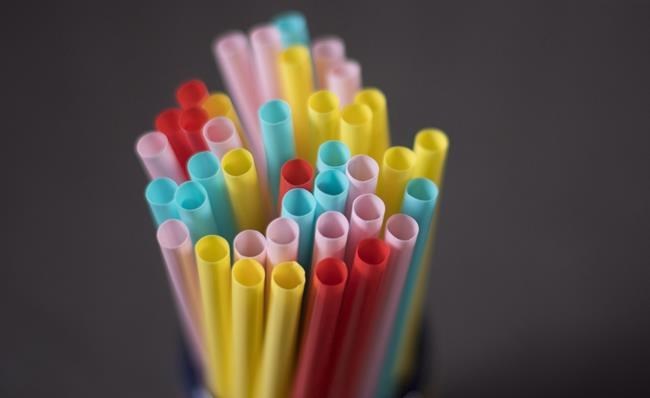OTTAWA — More than two dozen plastic makers are asking the Federal Court to put an end to Ottawa's plan to ban several single-use plastic items but Environment Minister Steven Guilbeault says he’s confident the attempt will fail.
Under regulations Guilbeault finalized in June, the ban is set to be phased in starting this December with an end to the manufacture, sale and import of takeout containers, stir sticks, retail carry-out bags, cutlery and most straws.
The six-pack rings used to package beverage cans and bottles together will be added to the ban for manufacturing and import in June 2023, and their sale banned in June 2024. Exports of all the products have to end in December 2025.
In a court filing July 15, a group of plastic makers calling itself the Responsible Plastic Use Coalition asked the Federal Court for a judicial review of the ban. It hopes to tear up the regulations enacting the ban and prevent the government from further regulating single-use plastics through the Canadian Environmental Protection Act, or CEPA.
It is the second lawsuit brought by the coalition related to the government's plastics ban. The first, filed in 2021, sought to overturn the government's decision to list plastic pollution as "toxic" under CEPA. That lawsuit remains before the courts.
The toxic designation, which came in May 2021 after a scientific assessment of plastic waste, is needed for the government to ban substances believed to be harmful to human, animal or environmental health.
CEPA defines a substance as "toxic" if it can have "immediate or long-term harmful effect on the environment or its biological diversity."
In its legal filing in the latest case, the coalition argues the government doesn't have real evidence plastics are toxic.
"In fact there is no credible evidence that any of the (single-use plastics) are 'toxic,’” the court document reads.
"Accordingly the ban cannot be justified as an exercise of the criminal law power conferred upon Parliament."
The coalition asked the court to put the brakes on implementing any parts of the ban until the decision is made whether or not to kill it completely.
In a written statement, Guilbeault said the plastics coalition can do whatever it wants in court but that he thinks they're going to lose.
"We’re going to stick to the facts, which show very clearly that plastic pollution is harming our environment and we need to act," he said.
"And we’re confident the courts will agree with our position."
The government’s scientific assessment published in 2020 concluded that plastic is "ubiquitous" in the environment, estimating about 29,000 tonnes of plastic waste ended up in the environment in 2016 alone.
"Since plastics degrade very slowly and are persistent in the environment, the frequency of occurrence of plastic pollution in the environment is expected to increase," the assessment concluded.
The assessment said macroplastics, which are pieces bigger than five millimetres, can cause physical harm to natural areas. Animals frequently eat or become entangled in plastic waste, causing injury and death.
Turtles, whales and seabirds are among the most commonly affected. A dead baby turtle in Florida in 2019 was found to have more than 100 pieces of plastic in its stomach. In 2018 a dead sperm whale found in Indonesia had six kilograms of plastic garbage in its belly, including two flip-flops, plastic ropes, four plastic bottles, 25 plastic bags and 115 plastic cups.
However, the assessment said the impact of microplastics, pieces of broken down plastic items that are smaller than five millimetres, was less clear, with scientists divided about whether microplastics can kill people or animals, or cause developmental or reproductive problems.
"The current literature on the human health effects of microplastics is limited, although a concern for human health has not been identified at this time," the assessment said.
It called for further research.
A 2019 Deloitte study found less than one-tenth of the plastic waste Canadians produce is recycled. That meant 3.3 million tonnes of plastic was being thrown out annually, almost half of it plastic packaging.
Federal data show that in 2019, 15.5 billion plastic grocery bags, 4.5 billion pieces of plastic cutlery, three billion stir sticks, 5.8 billion straws, 183 million six-pack rings and 805 million takeout containers were sold in Canada.
This report by The Canadian Press was first published Aug. 10, 2022.
Mia Rabson, The Canadian Press




